Executive Interviews
Our Executive Interviews feature top leaders from across the disciplines that we specialise in, sharing their career advice and experience with candidates seeking success in those sectors.
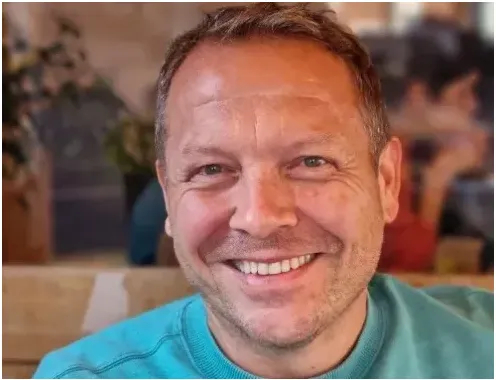
Jurg van Dijk - EMEA Tax Lead at Roku
In the summer of 2023, Jurg van Dijk ended his 12-year tenure as Senior Tax Manager at FedEx Express to take on an exciting new role as EMEA Tax Lead for US #1 TV streaming company, Roku. Nearly a year in, we caught up with Jurg to reflect on some of his most memorable career moments and tap into his insights on professional development, leadership and the challenges of retaining talent in a seller’s market.
What excites you about working for Roku?
Roku is a really dynamic and diverse company. It’s not only a streaming platform – it’s TVs, it’s operating systems, it’s soundbars; and perhaps coolest of all, Roku Originals – our original movies and TV series. The company is very focused on growth and development – so although my remit when I joined was to grow the business in the EMEA region, I’m now also busy working on Latin America, India and China. The atmosphere is so friendly and team-focused, too – I felt welcomed, valued and part of something from day one. I’m working with people with different backgrounds from all over the world, too, which I love.
What are the key drivers to success in finance that you watch out for the most?
You need a strong technical background – which might sound a bit boring, but it’s a must. It’s also important that you’re solution-oriented, and able to see not just the answer to a tax problem, but the route to get to it. You need to be careful not to view things with blinders on – keep a broad focus and be mindful of how your decisions impact departments outside of Legal, HR to Marketing and Sales. And you have to be comfortable around change. Change is inevitable, especially in tax law and finance – so if you don’t like change or aren’t prepared to deal with it, you’re in the wrong job!
Finally, prioritisation – I remember learning about the prioritisation matrix years ago in a time-management course and it’s stuck with me ever since. When you’re busy, it’s a really useful tool for identifying what’s urgent, what’s important and what you can delegate or leave for another day.
What have been the biggest learning curves in your career?
I’ve always felt it’s better to have a job that’s constantly changing – because change can be exciting; you’re never bored. Early in my tax career working as a tax consultant, though, I’d prioritise work for the senior partner who shouted at me the loudest… then I’d find myself in trouble with another partner for dropping everything I was doing beforehand! Those years as a tax professional at the Big Four advisory firms taught me a lot – about workload and time management, dealing with stressful situations and having difficult conversations.
Have there been any unexpected lessons you’ve learned in your career so far?
When I was at university, I always thought I was going to go and work for one of ‘the big four’, become a partner and go from there – but after a few years in the role, I realised that a pure tax advisory path wasn’t for me. That’s when I switched to work in industry – for KPN Telecom – working much more “within” the business, dealing with commercial people, legal, HR, etc. That wider scope suited me much more and I’ve never looked back since.
What advice would you give to someone looking to make a similar career move?
Just go for it! Starting in a tax advisory role is always going to pay off in future because it gives you such a good technical grounding. In the Netherlands in particular, the market for tax people is very buoyant – so I’ve known plenty of people who’ve left the big four to go into industry – and plenty who’ve returned after a couple of year because it wasn’t for them. There’s no harm in making a move and turning back – otherwise you’ll never know.
What advice would you give to someone starting their career in finance?
Try to see yourself not as “the person who does the taxes” but as a true business partner – someone who works proactively with the company, looking at the wider business goals, and helping to find solutions that meet everyone’s needs – not just those of the finance department.
What’s your secret to building a strong network?
Get yourself out there! Whether it’s an informal chat by the coffee machine or an in-person seminar, it’s vital to keep striking up conversations with new people, sharing experiences and actively listening as well as talking. It’s not just about talking business, either – when you speak about your personal life, too, the other person’s much more likely to open up and relate to you.
What’s a memorable moment from your career – and why?
Early in my career, the first time I worked on a high-pressure M&A deal, unsupervised by the head of tax – because I was thrown in at the deep end and I didn’t drown! There was a lot of pressure on me and my small team. I went into the negotiations, talked to the other party, reviewed all the documents – it was a big win for me, and I’ll never forget the moment the deal was signed.
Talking of being thrown in at the deep end… what advice would you give to someone else in a similar position?
Trust in your experience and your gut feeling, think about what your next steps are – but don’t overthink it. For example, imagine you’re working on an M&A deal, a proposal comes in from the other side and you’ve got just an hour to respond. You can’t panic in a situation like that. You have to stay calm and not allow room for doubt to creep in. You have to keep swimming!
What advice would you give to aspiring leaders?
Don’t micromanage. I don’t like being micromanaged, and I don’t like doing it myself either. Instead, make sure you’ve got the right people in your team – people you trust, with experience, knowledge and a clear understanding of what you expect from them. Make it clear what they can do for themselves and what you as a manager need sight of – so they feel that sense of autonomy while understanding when they need to connect with you. I also believe in leading by example – walk the walk and others will follow in your footsteps.
What’s your favourite quote or motto, and why?
A motto that a trainer says at my kid's rugby club is: “Don’t try to be better than someone else – try to be better than your former self”. It might sound a bit cliché but there’s a lot of truth in it. If you improve by one percent every day, then in a year you’ll be at least twice as good.
What recruitment challenges do you feel tax managers are facing at the moment?
It’s a seller’s market. There are so many opportunities for candidates in tax now, retaining our experienced and motivated staff is the biggest challenge. At Roku, we do that by keeping people as happy as we possibly can. It starts with making sure they’re well paid, of course, but also giving them flexibility and helping them to feel engaged and involved – so they really believe in what the company’s working towards and feel proud of what we do.
What does life look like outside the office?
I like sports – I play hockey, I’m planning my next skiing holiday with family and friends and I love hanging out with my kids. We spend a lot of time at the rugby club – not playing myself, I might add, or I’d probably break every bone in my body! I love going to concerts, too… oh, and I’ve just bought a banjo (since I am a big country music fan). So far I’ve taken it out of the box – I guess the next step is to start practising!
Thank you to Jurg for speaking to Kieran Hayes, Recruitment Consultant in our Finance & Accountancy recruitment team in the Netherlands.
Views and opinions contained within our Executive Interviews are those of the interviewee and not views shared by EMEA Recruitment.
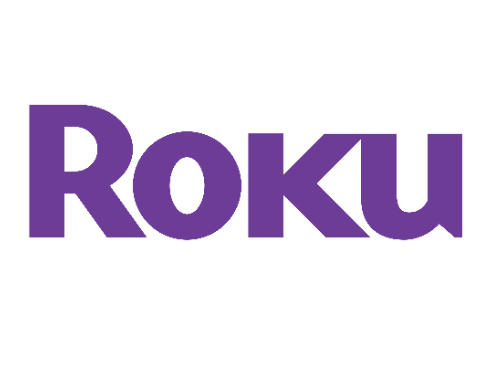
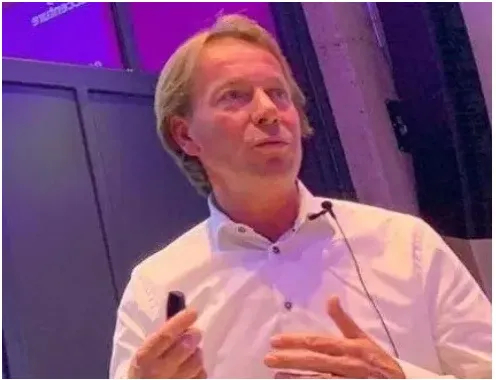
Herman Rolfers - Director of Global Digital HR Transformation at HEINEKEN
Herman Rolfers has been Director of Global Digital HR Transformation at HEINEKEN for little over seven years. In this fascinating interview, he looks back on a series of unplanned career moves that led him to his current role and discusses some exciting technological initiatives afoot for the globally-renowned beer brand.
Can you tell us about how your career’s developed – and the risks you’ve taken to accelerate your career growth?
That’s an interesting question and I’m probably not going to answer in the way you’d expect, because, in truth, you don’t always need a plan to progress in your career. Opportunities very often emerge for themselves; you just need to be able to see them. You also need to be curious, open to challenges, and willing to step out of the comfort zone. That is when real growth happens. As for the risks – well, they’re relative.
At university I studied Organisational Sociology – a field that pays attention to the internal structure of the organisations such as the managerial hierarchy, as well as to the external structures that connect organisations, such as strategic alliances. I thrived on the conceptual nature of it, learning how things evolve and then seeing the theory put into practice within a company or institution. Despite loving university life, I chose not to pursue an academic career in science and began my career as an HR Manager in aerospace. It was something of a pressure cooker and, in that environment, you need to keep a sharp mind: think on your feet and have a plan to keep up with the competitive dynamics of the industry.
I was involved in some amazing global initiatives while I was there. I remember stepping into the Head of HR’s office and seeing a date on a whiteboard. It was the deadline for transferring a whole section of the business and its people from the Netherlands to the U.S. No mean feat. The company also needed me to help find low-cost engineering facilities to enable portfolio expansion to build a solid foundation to unlock future growth.
It wasn’t your typical HR job; more working out how to get from A to B and fast! It required not just speed, but also agility, and ensuring we had multiple options on the table to navigate any challenges that arose along the way. It was not the first time I realised the importance of rooting my actions in sound strategic thinking and planning, while embracing a flexible, fast-moving mindset to get things done. ‘More than one road leads to Rome’, as they say.
That same mindset was needed when I worked for a global logistics and supply chain company, operated in both freight management and contract logistics. It was a Global HR Operations role, also part of the Mergers & Acquisitions team. During my tenure, our biggest assignment was working on the disentanglement of a global division: not something I signed up for at all. It just ‘happened’ because it was associated with the role that I was hired for.
Again, that taught me critical skills that I was able to take forward into my next role at a global pharmaceutical company, where one of my key objectives was to partner with new colleagues to integrate a global business unit following an acquisition. Further down the line, following yet another acquisition, I had to disentangle what I’d integrated! Again, it was a pressure cooker environment, completely unplanned, but by now I was equipped with the skillset and the mindset to handle it.
My next move was into insurance, pension and asset management – again a completely different industry - and one of my key responsibilities there was technology related. To be clear, I’m not a ‘techie’ – I'm an organisational sociologist – but technology brings huge opportunities to standardise, simplify and codify HR processes, to better support the business and drive a fundamental different employee experience. Again, I found myself in a position where I had to upskill and develop very quickly. That’s what eventually led me to my role here at HEINEKEN, where I was asked to do a similar job – but this time on a bigger global scale and with much greater complexity.
If you’d told me 10-15 years ago that I’d be leading HEINEKEN’s global digital HR transformation, I’d have replied that it was a ridiculous projection! Yet, this is the nature of career progression. I didn’t have a grand plan, but I saw opportunities and went after them, upskilling myself along the way. I’m enjoying it here, big time!
How are you collaborating with others to help HEINEKEN’s HR technology forward – and what’s the end goal?
The context is always key: understanding what you want your organisation to become and the part that technology plays within that. Two of HEINEKEN’s ‘must-win’ battles are to become the best-connected brewer and to unlock the full potential of our people and the organisation. This is where the conversation starts.
At a day-long planning workshop with HEINEKEN’s People leadership team, we put those two strategic goals front and centre and decided that, as a Global People Function, we wanted to become a fully employee-centric organisation and people insights led. This became our North Star: the guiding light to bring everyone in the organisation together, to keep us as leaders speaking the same language and moving the initiative in the right direction. Every organisation needs such a shared and compelling vision – especially when considering what emerging technology can do for your people and the organisation.
The next step is to ask business leaders to define their wish list from technology within the People domain. Of course, in a global organisation this runs the risk of producing an incredibly long list! We framed the question differently using design thinking to engage our key stakeholders and define the ‘personas’ typically found within HEINEKEN. Together we created a set of employee journeys and identified each persona’s expectations, for example on how they are onboarded and progress their careers. At this stage that we brought in the People teams who know their process inside-out and could apply them within the boundaries of the design principles.
Next step: implementation! We knew this was going to be a long and challenging journey, during which we needed to test our capabilities and create proof points for success. We identified six ‘early wins’ and set ourselves the objective of implementing in full, on-time and within budget. After the six early wins, moving on to Asia, the Americas, Africa, the Middle East and finally Europe. We were able to expand the scope of our work, adding greater value along the way.
As useful as platforms like SAP SuccessFactors, Workday or Oracle may be, they don’t provide a silver bullet and there will always to be gaps to fill. To do that, we decided to leverage our position as a global brand and hold a competition called the ‘HEINEKEN Brewhouse’; a cross between Dragon’s Den and a hackathon, open to start-ups, scale-ups, universities and our partners.
Brewhouse’s guiding philosophy is that innovation can come from anywhere and the aim was to create win-wins for both HEINEKEN and participating start-ups. The winners each take part in an innovation sprint, to drill down into how their solution can be used to solve our challenges. It still gives me a rush of adrenalin when I look back on it today, it is so exciting.
HR transformation will never be straightforward and through the HEINEKEN Brewhouse we are able to demonstrate that as a corporate business, we are prepared to fail fast and fail forward through experimentation. We’ve since the inaugural event in Singapore, hosted a second event in Amsterdam and there will be another in California mid-September of this year. We learnt how to better frame our challenges and identify what we need and don’t need, while start-ups or scaling businesses gain valuable experience applying their solutions to large and complex organisations creating a win-win for everyone.
I’m also a big fan of collaborating with other global brands. It’s my dream to bring these brands together one day, facilitate meaningful collaboration, and inspire the industry to dream big. By collectively inviting startups and scale-ups to showcase their innovations, and using ourselves as a testing ground, we can foster a vibrant community of innovators. Whether we’re creating a unique onboarding process—one that’s seamless, fun, engaging, and informative—or any other initiative, collaboration enriches the process and strengthens the culture at the heart of every successful company.
Looking to the future, where do you think HR technology at Heineken will go next?
I believe in business-led IT. Each function should have a technology leader – not necessarily someone who’s ‘techie’ themselves, but who deeply understands that function and can inspire their teams to reach for exciting and pioneering new solutions to achieve common goals. For example, I recently brought some of our partners in to talk about Generative AI. What is it? What can it do for us? Where’s the potential? How can it help to unlock the full potential of our people and the organisation?
We’re interested in how AI can help us to build a stronger, leaner and more agile Global People function – one with increased productivity that creates better outcomes both for our employees and for HEINEKEN as a business. Our business and expectations of employees are changing continuously: “what got us here, won’t get us there”. We need to build on the foundations we’ve laid, making our ways of working more efficient and effective and further improve the employee experience
We are exploring the potential of GenAI alongside our ambition to balance productivity (automation) with better outcomes (augmentation) for our people and the organisation. We’re a growth company and we aspire to unlock the full potential of our people and of the organisation.
Leveraging GenAI in our processes has the potential to enhance efficiency, decision-making, further improve the employee experience and we will start to integrate it with small, targeted use cases. This approach allows us to assess the impact of GenAI on specific areas, minimizing potential risks and providing valuable insights. By gradually expanding our use of GenAI we can unlock its full potential and ensure a seamless integration with our existing practices.
Our exploration around harnessing GenAI will always be anchored in a robust business case and with a profound understanding of the size, focus and cost dynamics of our People Function. We’ll continue to ensure that strategic initiatives are not only technologically sound, but also financially prudent with tangible and measurable outcomes including a positive ROI.
Is HEINEKEN doing anything to reskill employees to get them ready for this new world that AI is likely to create?
No aspect of our journey with technology is ever completed and upskilling is one of these continual upgrades. Managing change effectively is critical in planning any transformation and, of course, one size never fits all.
We need to constantly educate ourselves and our people to be ‘digi-fit’, to cope with the challenges in the automated and augmented world of tomorrow. We segment our audiences to make sure we thoroughly understand them and deploy targeted interventions and messaging at each stage of the change curve.
We’ve learnt a lot about how benefits and difficulties will be perceived across OpCos and geographies. I think we’ll need to take a similar approach when it comes to managing the implications of Gen AI over time. Remember; nothing is every finished, just upgraded.
Thank you to Herman for speaking to Katie Insley, Director in our Human Resources recruitment team in the Netherlands.
Views and opinions contained within our Executive Interviews are those of the interviewee and not views shared by EMEA Recruitment.
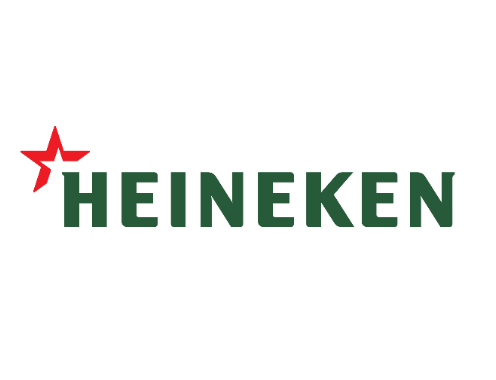
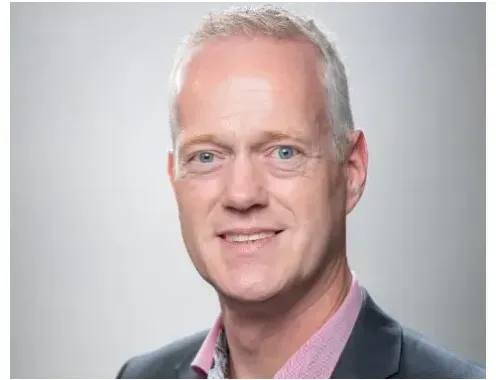
Ramón Tolk - Senior Director of Treasury at Avery Dennison
Ramón Tolk is the Senior Director of Treasury at Avery Dennison. He has a strong track record of leadership and treasury transformation achievements gained in multiple industries. Ramón began his career at Deloitte where he remained for more than 15 years before transitioning to interim contracting across the Netherlands.
You began your career in a ‘Big Four’ audit firm. How was that and what lessons and experiences from Deloitte do you apply today in corporate treasury?
My career in auditing began while I was completing my Master's and the chartered accountant's qualification simultaneously. I enjoyed combining study with work experience as I was able to put learning into immediate practice, and vice-versa.
As an Auditor, I specialised in housing associations: capital-intensive real estate with a large loan portfolio. It was through frequent discussions on how to manage the financing and the related interest rate risk that my interest in Treasury was sparked.
Soon after I’d graduated as a Chartered Accountant, Deloitte acquired a boutique treasury consulting firm, and I joined their team. Around this time new IFRS accounting standards came into effect for Netherlands-listed corporates, and Sarbanes-Oxley for US-listed ones. Among my treasury consultant colleagues, I was the only one with an audit background so I was well-placed to dive both worlds and became involved in valuations of derivatives and related hedge accounting, as well as setting up and testing internal control frameworks for the Treasury Department.
My experience allows me to collaborate with stakeholders across the company and understand their different perspectives, whether banks, controlling or accounting professionals or legal departments. I've always felt the importance of understanding how certain initiatives on one side may impact the other.
If you structure a specific intercompany financing or cash pool structure, it may work well from a Treasury perspective, but there may be tax consequences that you’ve overlooked. It's important to connect the dots and collaborate within functions.
What is the most rewarding part of your current role at Avery Dennison, and can you provide a short introduction to the company?
Avery Dennison is a global material science and digital ID solutions company, providing retail branding and information labelling solutions, including pressure-sensitive materials, radio frequency identification, inlays and tags, and a variety of other solutions. We are a US-listed Fortune 500 company with an annual turnover of US$8.4 billion, present in more than 50 countries.
I've been the Senior Director of Treasury for seven years now and the most rewarding part of that journey has been the business transformation within Treasury.
When I joined Avery Dennison, many aspects of Treasury required improvement, including expanding our European cash pool structure to one that includes every country that’s unrestricted by central bank regulations. Other transformative initiatives included optimising bank fees incurred for cash management through the global RFP process.
My team has also centralised our FX processing, expanding from FX trading to a larger group of banks implementing hedging based on Value-at-Risk. With this approach, we select FX hedge portfolios that would achieve maximum risk reduction for a certain cost of hedging (efficient frontier curve). By applying Value-at-Risk, the team can save on the cost of hedging within acceptable risk parameters. Furthermore, we worked on the enhancement of working capital initiatives like receivable financing solutions and amending our Supply Chain finance program to be sustainable and to move the company towards its goals.
We also set up a quantification method for our bank relationships so that we can view the share of wallet and what each bank earns on the overall business we do with them, whether it's bank accounts and cash management, FX, funding and all other activities. This information allows you to better distribute the business among banks, maintaining a positive relationship with each. This is important as it increases their willingness to extend or renew the current commitment.
Before I joined the company, cash was centralised through intercompany loans, resulting in a high intercompany loan balance and that created two major risks. Firstly, many loans were in a currency that wasn’t the functional currency of the lender or the borrower, or both! In those situations there was FX hedging required to manage the currency revaluation, incurring further costs. Secondly, a higher loan balance results in higher interest income and expense, and tax authorities are scrutinising more and more often the interest rate conditions on your intercompany loans. If they challenge the interest rate on a loan - and the loan balance is larger - there is a heightened risk of tax corrections and penalties. To address that, we put in place standardised processes, to reduce the loan balances through periodic dividend distributions.
We also implemented an intercompany loan pricing methodology that is OECD and BEPS compliant. It analyses the transfer pricing element of your intercompany loan pricing and ensures that is at arm's length.
Finally, we implemented a new treasury management system and set frameworks for commodity risk, interest rate risk, and counterparty credit risk management. We’ve also been standardising and sanitising our control framework.
This represented a complete overhaul of our Treasury function, which can only be done with your team’s support. It’s essential to bring your team along on the journey, share and embrace a vision and not be afraid of change. A team should always challenge the status quo by asking what could be improved.
Over the past three years, you've presented frequently at conferences, seminars and universities as a guest lecturer. What's the motivation behind that?
I have 30+ years of experience and have completed many interesting projects, so I have extensive knowledge and stories that I can share with others who may have limited exposure, shedding light on activities across Treasury community for them. Even for a gathering of seasoned treasury professionals, the cutting-edge nature of some projects we’ve completed is interesting for them to hear too, based on the feedback I often receive.
Alternatively, when I provide guest lectures at universities, it's just great fun to do. The students are usually at an early stage of their careers, and I enjoy making them enthusiastic about Treasury by sharing the vast experience I can bring to the table.
For the same reason, we provide internship opportunities within my team, allowing students to gain a half-year’s experience to kick-start their career. That’s also good for us as they provide fresh perspectives and they introduce themes from their very recent education into the company.
Another benefit is that when we have a vacancy within a team, we can hire one of the students who have completed an internship; I think in the last seven years, we have had four interns join the Treasury team permanently. It’s great because you can hire someone at the junior level, filling the gaps from underneath and allowing the rest of the team to make structured career progress and grow into more senior positions.
Of course, we can't offer a permanent position to every intern, but those who haven’t joined us have landed a very good junior position somewhere else.
For many corporations, DE&I is an important topic. Do you consider such policies when creating a team?
Yes, definitely. As a company, we have policies on this topic including our 2030 sustainability goals, which include a target on the ranking on the inclusion index as well as a target for the percentage of management positions held by women.
I strongly believe that diverse teams perform better than non-diverse teams. When I joined the company, I was lucky to inherit a team that was already very diverse by nationality; everyone in the team was born in a different country in Europe or Asia.
Gender-wise diversity was lacking as most of the team was male, but through the natural process of attrition, hiring and placing interns, we were gradually able to create a more positive balance.
First, of course, you must look at the quality of which you hire. But if people have the same qualities, then, you can let diversity be an element in your decision making.
Here, in the European headquarters of a large multinational corporation in the Netherlands, I think over 50% of the employees are non-Dutch and we have about 40 different nationalities. So, it's important to be mindful of cultural differences; to value and learn from the perspectives that everyone brings into the discussion; I see that daily in my work.
Additionally, as a Dutchman, I know that we can seem very blunt and outspoken in opinions. Sometimes that might be good as you get clarity on what you want, but it's important to realise that sometimes more tactful communication is better. Working in the international environment teaches you these aspects.
When we have an open internship opportunity, over 90% of the applications come from international students who are based in the Netherlands. Surprisingly, Dutch students don't look forward to an internship, or maybe they are just applying for internships with better-known corporates in the Netherlands. Avery Dennison branding doesn’t always feature on our products themselves, so it may be that we’re less of a household name for domestic applicants.
How do you unwind outside of my work?
I mostly spend my free time with my wife and two kids. We enjoy being out in nature and live near the Dutch coast, so we can easily hike to the dunes or go to the beach, which I love.
We enjoy sports and where possible try to combine that with being outside. My daughter began speedskating a few years ago so we often visit the ice-skating rink in Harlem.
During the COVID years, when I brought her to the rink, the staff were asking parents to help train the kids. So, for the last few years, I’ve been a trainer for those who just started learning how to skate. With a few simple exercises, you can see them make their first moves and they progress and improve their technique in a short amount of time, which is amazing to see. That's very rewarding for me and allows me to give something back to the community voluntarily.
During the summertime my daughter inline skates, so I’ve started training kids on the inline skate track too, helping them to progress and have fun. Of course, fun is the most important part, as kids these days are often found sitting on the couch, not playing outside as often as we did as kids a long time ago - at least as I did!
We work closely with an international medical charity, Operation Smile, who provide surgery to children with cleft lip and palate. Their goal is to create new smiles, so what was the last thing that made you smile?
My 13-year-old daughter. She plays the guitar and last week there was an open stage at her school, so everyone in school was invited to perform. She said she wanted to play a song and she was the only first-year student in school that performed. She did very well, and I was very proud of her; it definitely put a smile on my face!
Thank you to Ramón for speaking to Thomas Powell, Recruitment Consultant in our Finance & Accounting recruitment team in the Netherlands.
Views and opinions contained within our Executive Interviews are those of the interviewee and not views shared by EMEA Recruitment.
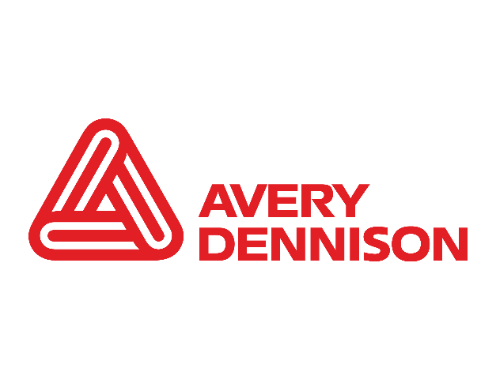
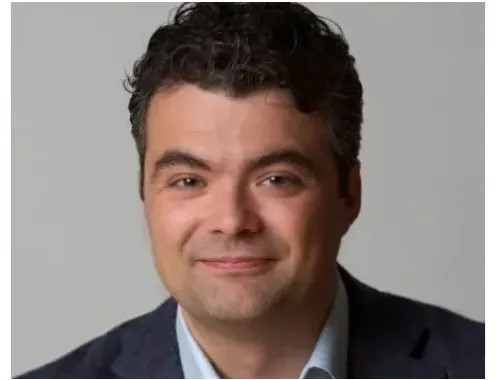
Sjoerd Cooijmans - Regional Head of HR, EMEA at RELX
Sjoerd Cooijmans started his career at Reed Elsevier (recently rebranded RELX) as an intern back in the early 00s. Having moved between 14 roles in three different countries, Sjoerd has enjoyed an exciting, international career with the global provider of information-based analytics and decision tools. In this fascinating interview, Sjoerd reflects on his career milestones, the value of working with true purpose and why uncomfortable situations can be a blessing in disguise.
Looking back, has there ever been a leader or manager that’s really influenced your career path?
In the very early days of my HR career working in Amsterdam, I was placed with a manager I didn’t click with – and in the end, I decided to look for another job. I was offered a ‘Head of HR’ role where I’d be responsible for 500 people in the Netherlands – a pretty cool opportunity considering I was only about 30 years old at the time! I jumped at the opportunity and handed in my resignation. Shortly after, however, my manager’s peer in the UK reached out and asked me if I’d consider staying with the company, moving to England and working for him instead, on a secondment at the famous medical journal, The Lancet. As scary as it was to uproot my life and move, I accepted – and ironically, that led me to the best manager I’ve ever had (plus, eventually, my wife!). To this day, I feel grateful for that. It taught me that no place, role or person is a jail – if you’re not happy, it’s up to you to make a change.
What was it about this particular manager’s leadership style that resonated with you?
Despite the level he was at, he was just a normal guy – so down to earth and nonpolitical. He wanted to do a good job, he genuinely cared a lot about people and he was heaps of fun. He took a risk on me and gave me the autonomy I wanted and needed – not just once, but twice, as he moved me over to New York to take on a role there, even though I wasn’t local to the region. The confidence he had in me ultimately made me believe in myself, and although the process of moving wasn’t easy, professionally or personally, I’ll always feel incredibly privileged to have the opportunity to work internationally. That’s also the big benefit of working for big global organisations – if you’re willing to take opportunities when they arise, they can be a real ‘playground’ for your career!
Tell us what excites you about working for RELX?
There are so many things. First, having the opportunity to live and work in London and New York for almost 10 years has been an amazing experience on many levels. The company I joined over two decades ago has grown and evolved so much – from scientific publishers Elsevier to the multi-divisional, high-performing FTSE 100 global company that is RELX. I remember reading an article during the early days of the Internet that predicted which companies would fold due to an increasingly online world – and Reed-Elsevier was number one. People believed that, as content would become freely available online, publishers like us would become surplus to requirement. What no one factored in was that – especially when you’re building platforms for analytics in the medical or research world – the quality of content is everything. The opposite turned out to be true. If you’re prescribing a pill, the difference between 0.1 and 1.0 can mean life or death!
I’m so proud to be part of an organisation that safeguards information in this way – a company full of smart people, whose content is the most trusted in the world and whose work genuinely changes people’s lives. Having a purpose that matters makes a big difference: we don’t sell insurance, beer or sausages – we sell professional, legal and scientific data. In the era of AI, data is gold.
Looking at current and future advancements in technology, how do you see AI impacting both your business and the HR function at RELX?
Interestingly, once again, people have been predicting the demise of organisations like RELX due to AI. You may need to catch up with me in five years to tell me I was completely wrong, but for me, AI isn’t some big threat. It’s just technology – and technology is nothing without reliable content. That’s the fuel for AI. That’s not to say there aren’t huge possibilities with it. For us, putting AI on top of the biggest pile of trusted information in the world is going to have some incredible benefits. It’ll be able to identify links between different pieces of research and in our medical division, it’ll be able to accurately define relations between drug interactions in seconds. If you think about it, relying entirely on one doctor’s brain is kind of risky – plus there are still huge parts of the world where reliable healthcare is still inaccessible for many. AI will eventually have the capability to clone expertise in a way that solves those problems and furthers the contributions we make to society and the communities in which we operate.
As far as generative AI goes, I’m curious to see what the future holds – especially in the HR space. Myself and other Heads of EMEA met in London a month or so and we looked at how AI can help us source the best recruits, whether that’s internally or externally, as well as help us with more every day, transactional tasks – benefits, policies, etc. Once again, though, you can only make use of AI if you get your house in order first. I sometimes think that HR functions have a tendency to be over-complicated operationally. If you have six sets of competencies for one role, for example, even AI won’t be able to figure it out. So if we’re first able to simplify and streamline what we do, the opportunities to boost engagement and save costs using AI could be huge – and even more so on the business side, in developing new time/resource-saving products and services.
Then if you think about it, there are all the other more subtle outcomes you wouldn’t necessarily expect – for example, they’ve found out that people talk more openly and truthfully to AI than they would a doctor or a psychologist, which leads to better diagnosis, better treatment and better health outcomes. It’s fascinating stuff.
Finally, a bit of personal insight – what’s your favourite motto or allegory when it comes to life and work?
My most important job is being a dad and I’m always reading stories together with my 7 and 8-year-old children. There’s one called The Boy, the Mole, the Fox, and the Horse by Charlie Mackesy, and in it, there’s a quote that really sticks with me both personally and professionally: “One of the greatest freedoms we have is how we react to things”. Going back to what we discussed at the beginning, you don’t always have a choice in a lot of areas – how many emails you receive, who your manager is, and what might be thrown at you out of the blue (especially true in HR). What you can control is how you deal with those things. I think teaching these interpretative skills to our kids is going to be vital as they navigate the mental health challenges of growing up with social media, and all the pressures they face in their social relationships with peers at school. And then later, with the stresses we all encounter in the workplace.
Another favourite quote comes, again, from a children’s book – The Big Panda and the Tiny Dragon by James Norbury. There’s a moment in there where the characters ask, “What’s more important – the journey or the destination?” And the tiny dragon says, “The company you keep along the way”. That’s so true, especially when I think about the team I work with – we have so much fun together. And as global colleagues, we’re always learning from one another as a natural consequence of cultural, language and communication differences. It’s been one of the most fascinating parts of my journey here and it’s something I’m always aware of in the way I lead my team.
Last of all (and this is particularly relevant to me right now – in the early days of a new head of HR for EMEA role and still working everything out!) – if a role change doesn’t scare you a bit, don’t do it. It’s that edge of fear, that element of the unknown, that adrenaline that will ultimately push you, develop you and bring the fulfilment you look for in your career journey.
Thank you to Sjoerd for speaking to Katie Insley, Associate Director in our Human Resources recruitment team in the Netherlands.
Views and opinions contained within our Executive Interviews are those of the interviewee and not views shared by EMEA Recruitment.
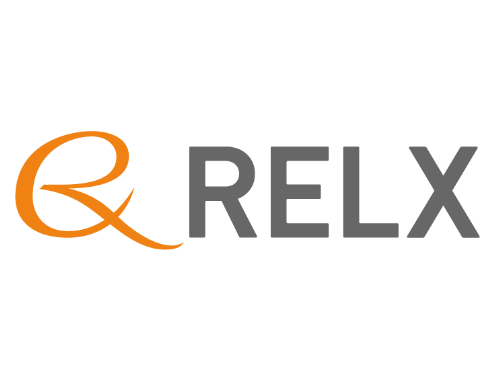
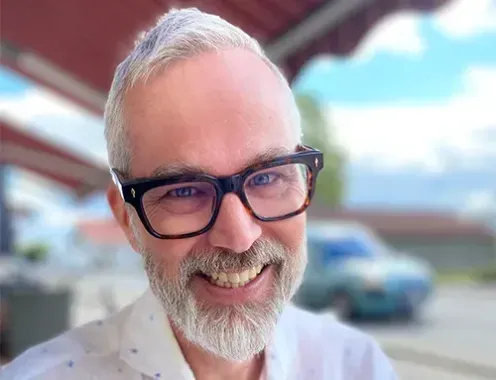
Johannes Bäckman - Vice President, Mergers and Acquisitions at Husqvarna Group
Johannes Bäckman is Vice President, Mergers and Acquisitions (M&A) at Husqvarna Group. Prior to this, he established E.F. English First in China and further developed his career at firms including Xylem Inc. and Loomis.
Here, Johannes discusses Husqvarna Group’s company culture, sustainability initiatives and innovations. He provides insight into the onboarding process and how job seekers can stand out from the crowd.
What is the most rewarding part of your role?
The most rewarding part is that there’s lots of variation and learning. When you’re working in M&A, you address areas of your strategy, areas of improvement and how to get to the desired position quicker.
A lot of my work is with external companies; trying to understand new businesses and see how they would fit with Husqvarna Group. I get to know new people too. That exposure to the external environment and the future-looking environment fits me well. I like that a lot.
What risks have you taken throughout your career? Have these helped you get to where you are?
It probably starts in my early childhood, with my parents. They were teachers and that meant we always had a lot of books at home. They influenced a specific choice that led me to where I am today. At 16, I wanted to go away for an exchange year abroad. I looked at New Zealand specifically because geographically it was as far away as you can possibly get from Sweden.
I asked my dad, what do you think? And then he said, “Well, Johannes, I think you should go somewhere where there are as few white people as possible.” So, I ticked the box with Asia. That started it all and I became an exchange student in Thailand, living in the countryside with a Thai family whom I am still in contact with. They were of Chinese heritage, leading me to want to study Chinese as well – that I did.
Asia was growing, it's a good place to be and it's good to know these languages. I added a bit of business education on top of that, but it all started with having an interest in learning, and that curiosity put me in a good place.
If there was something you could change in your career, what would it be and why?
I have always had a plan. I studied Asian languages because I wanted to work in Asia, and I planned to study business too so I would be employable. Right out of university there was a big financial crisis, and nobody was hiring. I was very lucky; I took another job working for the government. I worked for the cabinet during a reformation of the education system for universities. That was my first M&A experience.
I was responsible for carving out two publicly owned universities from the state and privatizing them, so that was my first step into restructuring. A university is not a corporate business but carving out an entity, making it independent, and working with top lawyers at the time structuring that transaction was a very early learning experience. I haven't regretted anything. Theoretically, of course, I didn’t plan to work for the government, but it turned out well.
What would you say is a personal highlight from your career?
I have always had this desire to start something from scratch. I got to do that as the first manager for a company called E.F. English First, which I started from scratch in the 90s. It's a well-known privately held language school in China; last time I checked it had about a million students, so seeing where that went is fantastic.
It was lots of fun and something I wanted to do. The experience was really rewarding and it's nice to see what it has become. Personally the greatest satisfaction is to see your children grow up, but from a career perspective, that has been really satisfying.
Could you tell me a little bit about the company culture at Husqvarna Group?
It's an old company, founded in 1689. It’s still vital with innovation at the heart of the company throughout that time. Every year there’s an innovation day in Huskvarna which is the company’s main site and our engineers show off their latest creations. On occasions such as these, the pride and dedication among our colleagues are unmistakable.
Nowadays, we mainly focus on outdoor equipment for lawn care and irrigation, and we're now innovating in that space as well. We have auto-mowers - essentially low-energy robots - that take care of your lawn as you sleep. They also save water for consumers through smart irrigation systems.
The company has a very informal and caring culture, utilising a first-name basis with a very flat structure between the CEO and other employees, so it's very easy to feel at home here.
There are loads of people and you need to get to know them to be efficient and effective; it takes multiple networks.
What are three to five key drivers to success at Husqvarna Group that you look for in employees?
As a business, we must think about the customers and solve their problems to drive our business forward. At the heart of our strategies is sustainable innovation - and sustainability is not a gimmick, it's something we build our business on. That is important for our customers, so we look for people who understand that and can fit into our culture.
You need to have a skill set but it comes down to your personality and who you are to be able to thrive in our company. Of course, there are some formal evaluations of people who enter the company, but you have to be personable and thrive in an environment where you must find solutions independently or in your network; nothing comes from the top down.
What excites you about working for Husqvarna Group?
It's the potential I see in the future. We're right to be thinking about reducing energy consumption and how to conserve water through technology. We are aligned with some larger trends in society which involve saving energy, reducing fossil fuel dependence etc. Then you feel that wow, we have a business that is good today but it's going to get even better in the future. That's exciting.
The environment is important. Green spaces are becoming increasingly important for people and their health; sufficient green spaces are required as people move to cities. In Paris, they have a grand scheme to plant a lot of trees and make the city more sustainable, partly to combat climate change but also to improve human health.
What does that onboarding process look like at Husqvarna Group?
I've only hired one person so far, but I had a good introduction. The onboarding was planned out well. Before starting, you get a welcome package, so you can read up on the company and the culture. After that, it is very important to set up a lot of meetings with people because of how it works here.
Whoever I hire needs to be able to build their own network and become a go-to person in the company for their specific skill set. When my colleague joined in March, she would shadow me at meetings. I set up a lot of meetings for her too so she could engage with colleagues 1:1.
Would you say that Sweden is a good country to live in, and if so, why?
Sweden is a fun and interesting place. I'm Swedish and I grew up here, but I also lived abroad for about 13 years of my life; so, I’m partly looking at Sweden from the outside. There's a lot of smart people and smart money here and that's good. It's a great place for families to grow up.
But it's an odd place as the Swedish economy should not work. It's like a bumblebee, it looks very big, and it's got only two little wings, but it keeps afloat somehow. I think partly because of its high-trust society; you don't have too many control functions and we save costs by not checking everything. There’s trust between people and that translates to companies as well, it’s very efficient. Although it is high-cost, with high taxes and a high welfare society, on balance I think it works well.
How does it compare to the other countries you've lived in?
I can't compare it at all as I’ve mainly lived in China. China has a completely different history being a central state for a very long time and has, let's say, a command-and-control culture spanning thousands of years.
I like China and the people, but there is not the same feeling in China, where you trust the people around you – your friends and family – but that's about it. It's a big difference on a societal level. Of course, there are massive differences in your day-to-day life as well.
I have never been unhappy wherever I lived. After a while, you tend to find that people are different in terms of culture, how you do things etc. but once you get beneath the surface you have the same issues, and you can always connect to people.
What advice would you give to someone who's starting their career in Finance?
Stay curious. Finance is a broad topic. It's an important part of what the company does, to provide input on how you're performing, directing investment where it makes the most sense and ensuring your shareholders get a return as well, that's important.
It’s a very broad skill set, and it can be used in other things too. For example, I started working in Finance, then migrated over to business development and later M&A. The toolbox that I acquired from Finance is useful. It's valuable to understand to be able to paint a picture of what's going on today but also the future.
I don't think you have to narrowly focus on the Finance function. If you want, you can become very deeply skilled in Finance, but it can also be fairly broad, and you can make good use of it in various walks of life.
What advice would you offer to a job seeker looking to stand out in the market?
I mentor university students and those on a master’s program at the Stockholm School of Economics. First, you have to get to an interview, so you have to present yourself in a way that shows your skill set but also lets your personality shine through as well.
When I talk to my mentees, we often talk about how they present themselves in CVs and letters, and we talk a lot about who they are and how to become more alive in the letters they send to a company.
If that company is not a good fit, it doesn't matter because recruitment is a matching function. Stay true to yourself as companies are looking for different personalities.
Also, be mindful of the fact that some opportunities open and some close. Nowadays you have to cast a wide net. You can't just target exactly what you want because there might be opportunities out there that you haven't thought about. So, use a broad mindset.
From your perspective, how would you define the role of VP M&A?
M&A is a tool that we use to make our company’s strategy come alive and get to where we want to be, perhaps faster through closing gaps in knowledge or our market position.
We can cut away things that somebody else can be a better custodian for or add attractive products or services to our portfolio. You must know your strategy to work in M&A, they go hand in hand.
My job is to identify those target areas, ensure we have the right M&A process, and move the cases through that process. Part of it is making deliberate transactions. There are multiple hoops you have to jump through but it's working with the organization to help them deliver strategy in a better way.
The real make-or-break in a transaction is integration. As the M&A team, we are not part of that, so we need to prepare the organisation for that phase. Our specific responsibility is to make the transaction happen. But of course, we need to help people hunt for the right targets aligned to our strategy.
We take the right things through the pipeline and help people deliver value in integration. The beauty of it is the people responsible for integration will learn from that experience and become better at target selection as well.
What would you say the effects of BI and data are on the function, now or in the short to mid-term?
It's an opportunity to deliver more value to our customers. We use many platforms to obtain data on companies and have been exploring AI-driven tools to improve our target selection but I haven't found anything wonderful so far.
If your team know the strategy, they can usually come up with really good ideas. In a way, the AI I’ve used is mainly our people and their knowledge of the market.
I'm very interested in the how communication will work in the future… I’d love to have a chatbot!
Is there a myth in your profession that you want to debunk?
One myth is M&A is a type of deal-making. It’s not, it's a practical set of tools. Maybe if you're in a bank you can make deals happen. But for me at least, M&A is not so much about deal-making.
It's about ensuring that we have the right selection criteria and process, we find the right targets, we do well in buying or selling them, and then integrate them well.
It's not fashionable. It's a process-driven organisation. The process is pretty much the same every time, but the target and the subject matter vary. It is a lot of hard work. Thousands and thousands of details that you have to understand to decide whether important or not.
What would you say is one of the best compliments that you've received in your career?
Compliments from vendors who have said “I fully trust your judgment”. I like to build relationships with them, of course we have our objective in a transaction and we only want to make an evaluation that should be as reasonable as possible. You don't want to pay too much, so it could be an adversarial situation, but I like building relationships with sellers and making sure that they understand that we're not paying an excessive price for their business, it's a reasonable one and we will take good care of their people. Those transactions have worked out well.
For some of my jobs, I've had people that have been selling their businesses as referees and that’s good from a work perspective. You have to look after your interests because it's my job to look after my company's interests. I need to pull as much as possible towards my end of the table.
In the end, people must compromise; you cannot get everything that you want - that's impossible. Navigating those situations well is very important.
Who would you say is the most inspiring person for you in business and why?
There’s no public figure that I particularly admire but I’ve had multiple good managers over the years. For me, a great manager understands what I can do and lets me get on with it without micromanagement. When you have a good open relationship with your manager you can talk about anything.
What are some of the key challenges that Husqvarna Group is going to face regarding sustainability?
We have very specific sustainability targets, undertaking to cut our carbon emissions by 35% by 2025 - not just for the production of our equipment, but where people use our products under ‘Scope Three’. It's much more ambitious than most other companies. Remarkably, we have already surpassed this goal, achieving a reduction of over 50%, which is truly impressive.
The next step for us is to decide on our net-zero plan and when that is going to be. We do have combustion engines as part of our product offering and we’re trying to phase them out where we can or use alternative fuels where we can’t.
A business must think of itself as on a path to net zero because otherwise, your business will not be sustainable. It’s not about being a sustainable business, it’s making your business sustainable. So that’s one part when it comes to emissions. We also have a stated target on innovations to enhance circularity.
Additionally, we make smart controllers for irrigation, saving millions and millions of cubic meters annually. For example, instead of irrigating your lawn or garden when it’s going to rain tomorrow, the smart controller knows it’s going to rain tomorrow and will not use any water today. We also have smart solutions based on measuring soil conditions.
People don’t think about saving water too much because water is a commodity that is a bit too cheap today. I’d like to know the price of 1 litre of water in 2050. I suspect it’s going to be a lot higher. Then of course, if you have technology to save water, you also have a business that is sustainable as well.
What business value have you seen from making sustainability improvements?
If you have a lawn mower with a petrol motor on which you walk behind and push, it creates a lot of emissions… changing that for a low-power robot that uses batteries and smart technology is good from an emission perspective, but it’s also good for our business: we make much more money on the robot than on the walk behind a petrol-driven lawnmower.
Occasionally, we have to sacrifice profitability to be able to cut emissions. In general, moving as much as we can to either battery solutions or smart fuels - or something we don’t exactly know yet – is the way to go.
If you cut logs in the forest all day, you can’t carry the eight packs of batteries needed, so we have to come up with another solution. We know we can’t keep making the same two-stroke motors, so that challenges us to come up with new, smart solutions to solve the customers’ problems.
Do you have anything that you want to add to your Executive Interview that you would like to share?
Just that I really enjoy working for Husqvarna Group, and I think for the people looking for a job, a job is not just a job. You should be somewhere where you feel happy with your colleagues and with what the company is doing, then you can thrive much more. Again, most people have to work but make an effort to find the right place for you.
Thank you to Johannes for speaking to Hanna Gibson, Senior Consultant in our Nordics division.
Views and opinions contained within our Executive Interviews are those of the interviewee and not views shared by EMEA Recruitment.
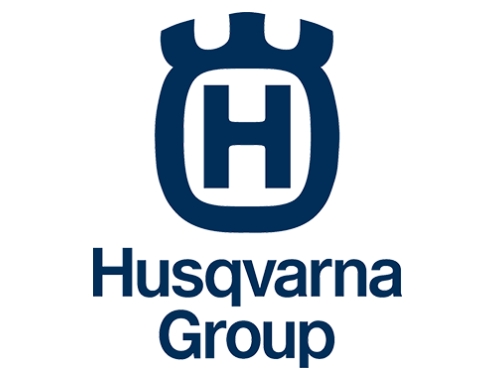
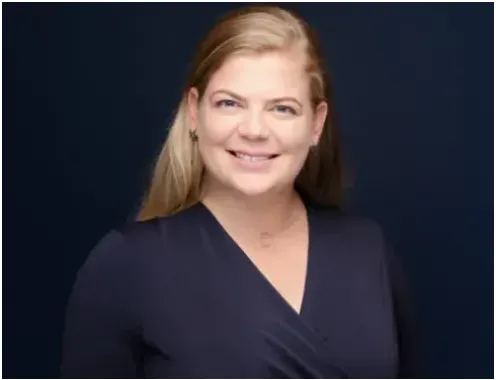
Sylwia Workowska Blokhuis - Director of Accounting at Prologis
Sylwia Workowska Blokhuis is the Director of Accounting at Prologis. Having spent over 16 years building international experience as an accounting professional in publicly listed companies across various industries, she’s a progressive and team-oriented leader.
How did you plan out your career development path?
At an early stage of my life, I knew that Finance & Accounting were areas that I wanted to focus on. I chose Finance as a major for my studies and was very motivated to start gaining professional experience as soon as possible.
In my fifth year, I asked the Dean’s permission to combine my studies with professional work; that was granted as I’d had very good grades. It gave me some time to explore the professional industry, whether it was the correct choice and direction for me and whether I should proceed with it after I graduate.
It turned out to be the right direction for me; it suited my skill set and personality and kept bringing me joy; so I have continued to pursue it for the past 18 years, taking part in new projects and setting myself ambitious goals.
As I progress, I reassess my career path and strategy; whether I'm still going in the direction I want to be going in to achieve my long-term aims.
How have you managed the changes in your career and the diversity in the sectors that you've worked in as a leader?
I have worked across consumer goods, manufacturing and logistic real estate and have had the great pleasure of working in great companies that focus on their teams, each global leaders in their respective field, who provided me growth opportunities. When I switched roles it was for personal reasons versus work-related ones; and I'm happy that I made those changes because it helped me to grow and to learn about new industries.
The way I approach change is with curiosity, trying to have a learning mindset and staying very open-minded. I want to learn as much as possible about the business: its goals, its strategy, and how my team and I can be the best support.
I also believe that success is never achieved alone. If you want to be successful in what you do, you need to build strong relationships and that usually brings the best results.
How do you retain and develop the talent in the business that you're working in? And can you give me a few examples of when you've had to champion retention?
During times of transformation, the best strategy is to stay connected. Focus on relationships and gaining a strong understanding of your team's needs. What kind of challenges do they face and how can you best help address them?
I also think that using clear, transparent communication and not being afraid to bring bad news is very critical. Sharing a hard truth is ultimately better than a sugar-coated lie. It helps build trust. Just focus on bringing the message constructively.
Business transformations offer the best opportunities to grow and develop because that is when the most change is happening. Exploring through learning and making those new connections is how people grow the most and that keeps them engaged.
If you're trying to create something entirely new, it never comes with zero frustration or a super clear path in front of you. If you have a well-balanced team that has each other’s back and supports each other, they can face any of the frustrations that change brings. When people feel connected, they see a bigger cause and a bigger picture. They tend to understand the reason why things are done a certain way.
We've had a lot of changes in this world and within your industry (COVID, remote working from a cultural perspective, and more recently Ukraine). How do you motivate professionals within your business with all these changes that we've been through and still going through?
It is important to acknowledge that those changes are happening. Don't try to pretend they are not there; they are, and people experience them, and those experiences differ per person. Try to understand individually what people are going through and see how you can help and support them.
In general, I believe in an individual approach, and again being close to people with whom you are working; together you can understand a situation and the best way to support it.
COVID, of course, took some adjustment, but surprisingly both the team and I adapted quite fast to this new situation. We figured out new ways of working together in the remote environment, which meant staying connected even more. I was quite surprised to see how well we thrived in this situation.
We found creative ways to continue achieving our goals through the online environment; it was intensive in one sense but helped us foster a culture and keep the relationships that we’d built prior. Our relationships didn’t suffer in the remote environment, but it took effort to make sure that was the case.
Motivation comes down to a healthy working culture; one that stays connected, and fosters relationships in an environment that allows us to thrive. For me, that means engaging work with growth opportunities, having an impact and being empowered to make a change, great teamwork, but also well-tailored recognition and reward for performance. In my opinion, it’s good balance that keeps people happy in the workplace.
What I appreciate in my surroundings is that we can openly discuss the challenges and work together on solutions. I feel supported by my leadership team, and as explained I'm doing my best to pass on that same support to my teams. That is what gets us through challenging times.
I'm keen to understand the risks that you've taken throughout your career, how have they helped you get to the level that you are at now?
Prologis offers a dynamic environment; each year brings challenges and some type of transformation.
Recently, I agreed to step back from managing one of my teams to allow myself more time to focus on the onboarding of new business lines. I’d managed that team for 10 years and I was very connected with them. But, as you can imagine I knew the process in and out and there were fewer learning opportunities.
It was hard, but it opened countless opportunities for me to get involved and help shape the new business lines, in many cases from scratch. That meant stepping out of my comfort zone.
Every new experience brings risks and it's not easy to let go, but doing so made space for me to grow. In the long run, getting out of that comfort zone is what brings opportunity that helps you progress your career.
How do you manage business partnering and performance management?
Business partnering is a key strategy for my department. Accounting & Finance is a support function but we have to support the business in the right way.
I reach out to our partners proactively, to ensure that we understand each other’s goals, where are we coming from, the challenges that the company faces and how we can support their business decisions by delivering the correct data when it is needed. I think there’s been good progress on being a good business partner and having a good impact.
When it comes to performance management, I’m very much data-driven… the numbers speak volumes. Obviously, I have an Accounting and Finance bias there! I do my homework: present the data, cite sources and be clear in advance on what I want to communicate.
At the same time, a number is just a number, and some numbers need a story to go along with it. I try to understand the root causes of whatever we’re facing and how to address these challenges. I like to have experts from each area, a small team, to work together on tackling particular challenges and get the best expertise on that particular focussed subject.
What would you say is the most memorable moment from your career and why?
One key moment was at an early stage of my career when I became a leader of the team that I was part of. It was quite a step to manage a team where I’d previously been a colleague.
At that stage, a whole new world opened to me. I had to give some thought to what kind of manager I wanted to be and the leadership style that most suited me. That of course, took time, it didn't happen overnight.
It's not something of which you can say “Ok, I’m done. I am now a leader”. Leadership is a journey, and you keep on learning and adjusting at every step of it, including mistakes.
I believe that I learned from them and helped myself grow. I'm happy with the steps that I’ve taken throughout my career and the progress that I’ve made.
What advice would you give to aspiring leaders who want to be in the position that you're in?
Be brave and take that first step. Even if you’re not a born leader, you have to believe in yourself. Those first steps are the hardest, but once you are in that role, you will start learning and developing and progressing through that.
Continually reassess who you are and what kind of leader you want to be. At the same time, accept that you're going to make mistakes. Learn from them and don't be afraid to show vulnerability.
Understand the expertise within the team you have. Rely on it, know your processes and stay hands-on so you can guide, coach and support when needed. Last but not least, maintain communication and transparency for strong relationships. I keep coming back to that - but for me, relationships are key to driving success and you don’t achieve it alone.
The key things we say to those aspiring to get into strategic roles are to network, and never stop learning, define what kind of leader you want to be in the early stages of your career, look at the leaders who motivate you and push forward and make those steps…
Especially at the later stages, where you are in those very elevated roles, these factors impact what kind of leader you are. It's critical to define who you want to be as a leader, that's also how you will to some extent impact and foster the culture of the organisation through that.
Thank you to Sylwia for speaking to our Finance & Accountancy recruitment team in the Netherlands, led by Hannah Mallia and David Harper.
Views and opinions contained within our Executive Interviews are those of the interviewee and not views shared by EMEA Recruitment.
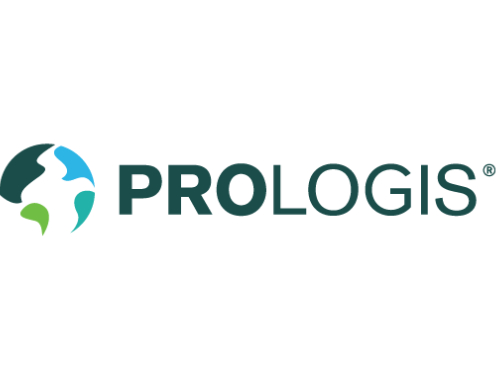







You can also use your social account to sign in. First you need to:
Accept Terms & Conditions And Privacy Policy